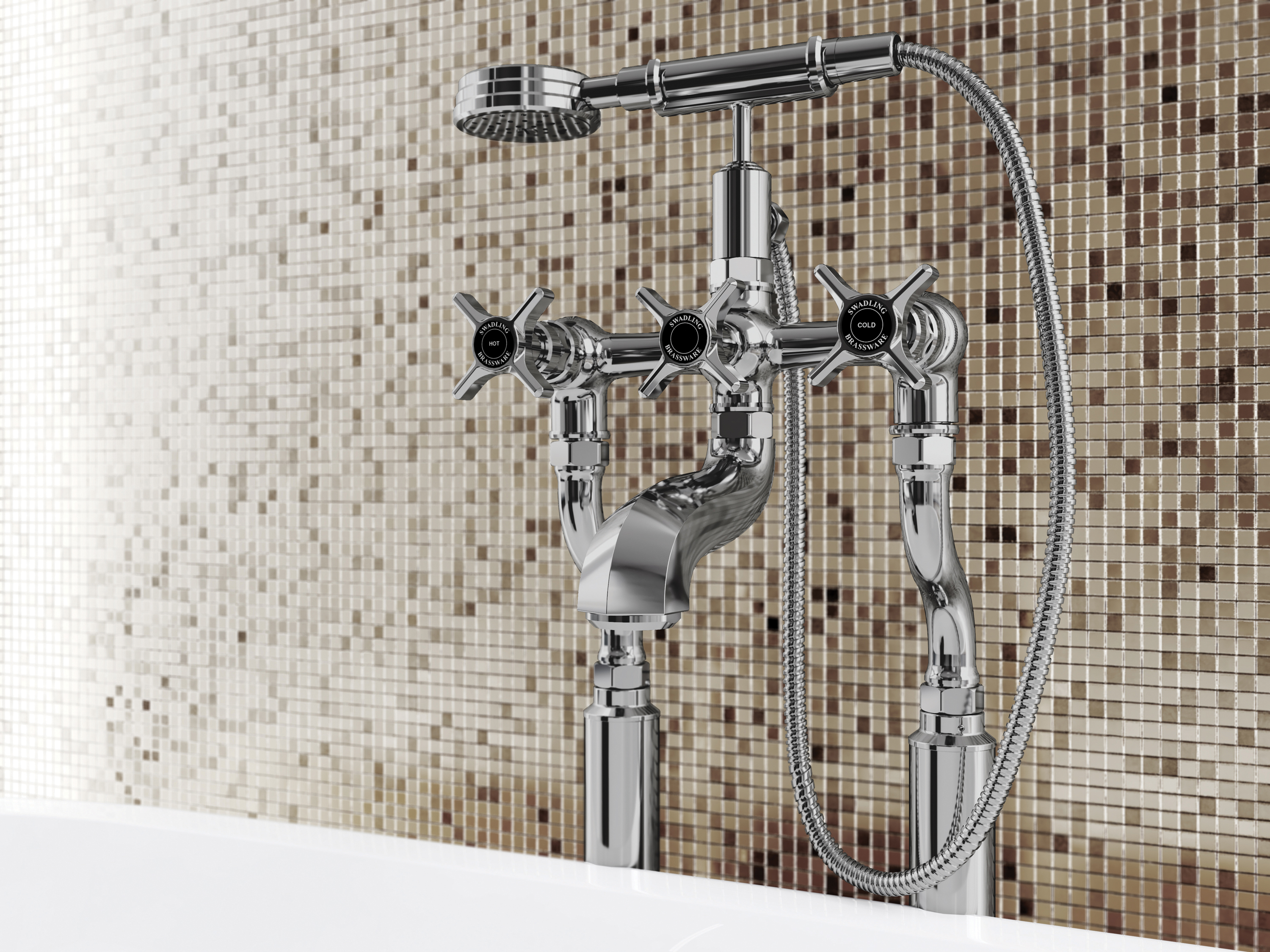How to remove hard water stains
Hard water stains spoiling the appearance of bathroom and kitchen surfaces? Here’s how to get rid of them


How annoying are hard water stains! If you live in an area with hard water, we know you’ll be saying ‘very, very’. Your kitchen and bathroom can be otherwise clean, but these stubborn marks cling on, spoiling the appearance of surfaces like shower surrounds, tubs, sinks and faucets.
Hard water is – to get scientific for a moment – water that’s high in dissolved minerals, mostly calcium and magnesium. If you have hard water in your home, you’ll not only be well aware of it because of the deposits that accumulate on surfaces, but also because it builds up in your coffee machine and other appliances. It also means you need more soap for your hands, and more detergent for your laundry.
There are solutions to hard water stains, though, and we’ll show you how to tackle them to make surfaces shiny and deposit-free. Need more advice on making your home pristine? Just head on over to our cleaning hub.
How to get rid of hard water stains
Use these tactics to remove hard water stains from all the surfaces on which it accumulates.
1. Use vinegar to remove hard water stains
Want to get started on hard water stain removal right away? If you’ve got some white vinegar in the cupboard and a spray bottle, then you’re good to go.
Make up a solution of vinegar and water in equal proportions in the clean bottle. You can spray your limescale-removing solution on to glass shower doors, basins, the tub, tile, and faucets. Leave for a few minutes, rub to remove the hard water stains, then rinse thoroughly with clean water. Dry with a soft cloth.
The only caveat: don’t use this method for plated fixtures as vinegar can damage their finish. Lucky enough to have any beautiful marble surfaces? Don’t clean these with vinegar, either, as it can leave a mark (and you definitely don’t want to swap one problem for another).
Get small space home decor ideas, celeb inspiration, DIY tips and more, straight to your inbox!
2. Tackle stubborn faucet marks the natural way
If the hard water marks have really built up on a faucet, vinegar can still be the answer, but you’re going to need to give the stains a longer treatment. Try soaking a cloth in the same half and half white vinegar solution, then wrapping it around the faucet so it’s in contact with every area. Leave for an hour or so.
You many need to use a little effort to work off the hard water deposits after this. Make sure you use a bathroom sponge or an old toothbrush that won’t scratch the tap. Rinse with clean water when you’re done. Buff dry and shine with a soft cloth.
3. Brighten up a shower head
If you can remove a shower head to clean it, so much the better. Soak it in white vinegar for an hour. The only exception here is for a brass shower head. For one of these, just soak for 30 minutes. Rinse then try using a soft toothbrush to work on any hard water deposits left on there. Rinse again thoroughly and when the shower head is re-attached, turn the shower on to rinse it completely of vinegar.
Don’t want to remove the shower head, or it’s a fixed version? Half fill a plastic bag big enough to fit the shower head with white vinegar, and secure it on the submerged shower head using an elastic band or string. Again, leave for an hour unless your shower head is brass when 30 minutes is the maximum.
When you’ve taken the bag off, rinse the shower head with clean water and turn the shower on to flush it through. Then – and you know the drill by now – dry with a soft cloth.
4. Get hard water stains off the toilet
Hard water can stain toilets badly, and white vinegar poured around the rim and left overnight then brushed and flushed could do the trick.
Not budging? It’s time to try an old toothbrush as a remover. Go at your task gently, though, as you don’t want to scratch the ceramic.
Alternatively, try a pumice stone. Test on an inconspicuous area first to make sure your toilet won’t be scratched, and work with care. If you want to make the job easier, try the Powerhouse Pumice Toilet Bowl Cleaning Stone. Specially developed for the job, it has a handle so you don’t have to get quite as intimate with the toilet bowl.
5. Use a specialist product
If vinegar isn’t cutting it, or you can’t tolerate the smell, get yourself a hard water stain removing product to rid items of the deposits. CLR PRO Calcium, Lime and Rust Remover is a non-toxic cleaner. You can use it on stainless steel, countertops, tubs, showers, tile, toilets and sinks, along with for glassware and exterior windows.
Prevent hard water stains
Prevention is better than cure, right, and while you can’t put a stop to the deposits from hard water, you can reduce them. Squeegee showers and tile, and dry bathroom and kitchen surfaces after use and the minerals from your water won’t hang around.

Sarah is a freelance journalist and editor writing for websites, national newspapers, and magazines. She’s spent most of her journalistic career specialising in homes – long enough to see fridges become smart, decorating fashions embrace both minimalism and maximalism, and interiors that blur the indoor/outdoor link become a must-have. She loves testing the latest home appliances, revealing the trends in furnishings and fittings for every room, and investigating the benefits, costs and practicalities of home improvement. It's no big surprise that she likes to put what she writes about into practice, and is a serial house revamper. For Realhomes.com, Sarah reviews coffee machines and vacuum cleaners, taking them through their paces at home to give us an honest, real life review and comparison of every model.